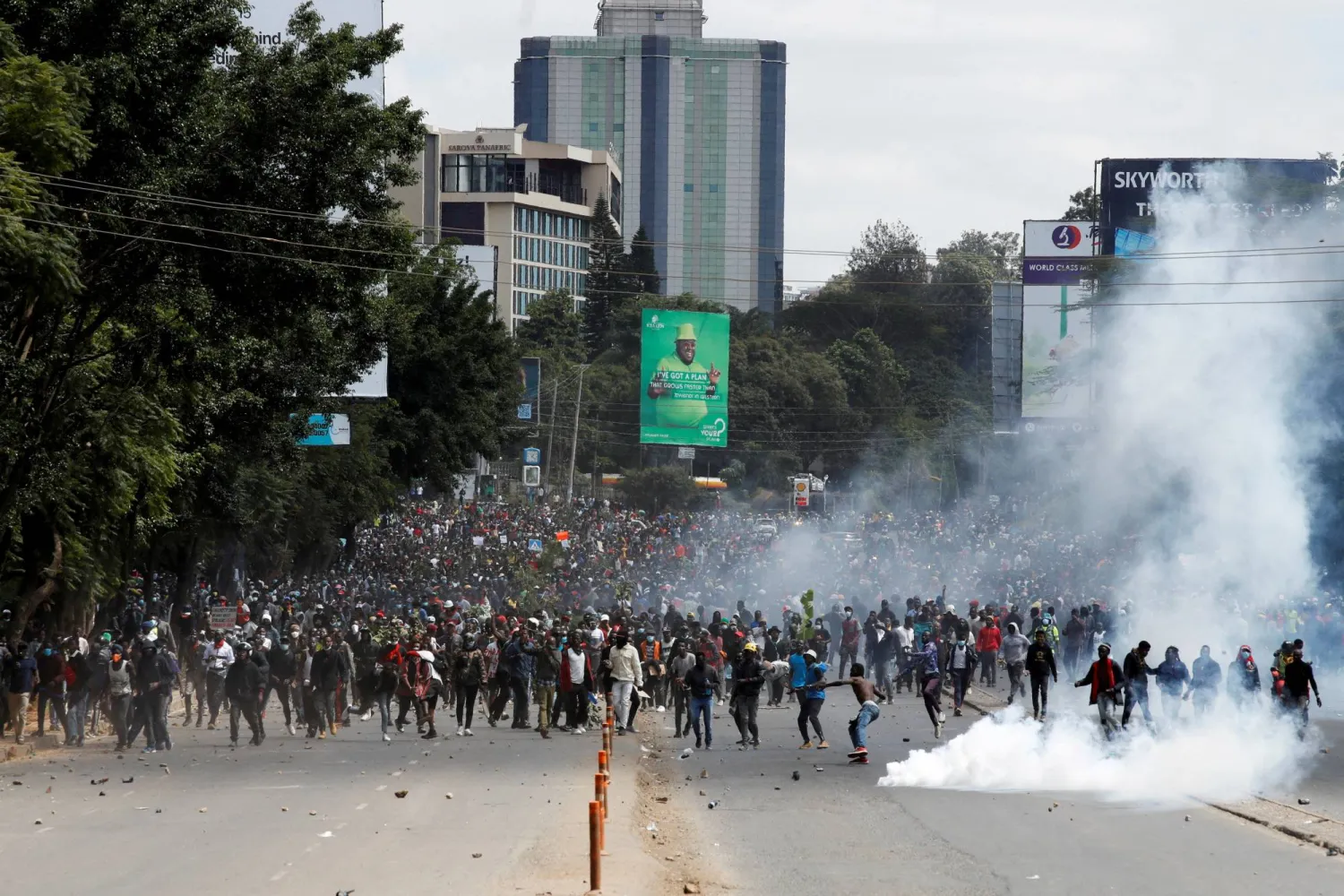At least 30 people died in protests in Kenya this week sparked by a government drive to substantially raise taxes in the East African country, Human Rights Watch said Saturday.
"Kenyan security forces shot directly into crowds of protesters on (Tuesday) June 25, 2024, including protesters who were fleeing," the NGO said in a statement.
"Although there is no confirmation on the exact number of people killed in Nairobi and other towns, Human Rights Watch found that at least 30 people had been killed on that day based on witness accounts, publicly available information, hospital and mortuary records in Nairobi as well as witness accounts," the statement said.
"Shooting directly into crowds without justification, including as protesters try to flee, is completely unacceptable under Kenyan and international law," said Otsieno Namwaya, associate Africa director at Human Rights Watch.
"The Kenyan authorities need to make clear to their forces that they should be protecting peaceful protesters and that impunity for police violence can no longer be tolerated," AFP quoted Namwaya as saying.
The largely peaceful rallies turned violent on Tuesday when lawmakers passed the deeply unpopular tax increases following pressure from the International Monetary Fund (IMF).
After the announcement of the vote, crowds stormed the parliament complex and a fire broke out in clashes unprecedented in the history of the country since its independence from Britain in 1963.
President William Ruto's administration ultimately withdrew the bill.
The state-funded Kenya National Commission on Human Rights said it had recorded 22 deaths and 300 injured victims, adding it would open an investigation.
"Eight military officers came out and just opened fire on people. They killed several people, including those who were not part of the protests," HRW quoted a rights activist in Nairobi as saying.
"Kenya's international partners should continue to actively monitor the situation... and further urge Kenyan authorities to speedily but credibly and transparently investigate abuses by the security forces," the rights watchdog said.
Ruto had already rolled back some tax measures after the protests began, prompting the treasury to warn of a gaping budget shortfall of 200 billion shillings ($1.6 billion).
The cash-strapped government had said previously that the increases were necessary to service Kenya's massive debt of some 10 trillion shillings ($78 billion), equal to roughly 70 percent of GDP.
The Washington-based IMF has urged the country to implement fiscal reforms in order to access crucial funding from the international lender.
"The bill was expected to raise an additional $2.3 billion in the next fiscal year, in part to meet IMF requirements to increase revenues," HRW said.
"Widespread outrage should be a wake-up call to the Kenyan government and the IMF that they cannot sacrifice rights in the name of economic recovery," Namwaya said.
"Economic sustainability can only be achieved by building a new social contract that raises revenues fairly, manages them responsibly, and funds services and programs that protect everyone's rights."









